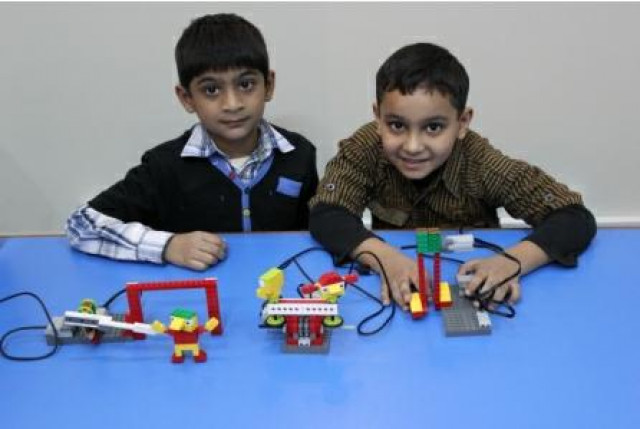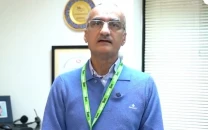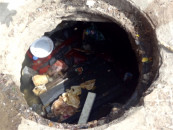Robotics lab: A place where five-year olds develop games
Silicon Valley experienced electrical engineers open science learning centre for kids.

After serving high-tech firms in Silicon Valley for 13 years, electrical engineers Afaque Ahmed and Yasin Altaf returned home to connect with their families. Although the family reunion was the real motivation to move back in 2004, the decision is benefiting the country in multiple ways. They have created a platform that prepares future scientists, app developers and also earns foreign exchange.
“We might have been able to earn a lot more in San Jose, California but the satisfaction of staying close to our family and making some tangible contribution to society and the economy is unmatched,” said Ahmed.
“Both Yasin and I were of the opinion that Pakistan is a wonderful place to do business and especially in something related to information and communications technology,” Ahmed said, adding, “yes, there were and are problems but the opportunities like quality human resource, low cost business operations and others outweigh those.”
In 2007, they launched Cloud BPO – a high tech IT outsourcing company that serves international telecom operators. The start-up grossed Rs80 million in revenues at the close of last business year.
While their company is earning valuable foreign exchange for the country, the two are determined to pass on their expertise to the next generation.
“We also wanted to share our technical expertise and experience with our upcoming generation like our nephews, nieces & siblings, which had never been possible with us living in the valley,” Ahmed said.
The two set up a robotics lab, the only modern scientific learning centre in Pakistan, in December 2011, according to its director Afaque Ahmed. The science-based lab that uses robotics to train young children about practical science is a fresh concept even in the US, Ahmed said. It helps young children – from 5 to 16 years of age – to learn about cutting-edge technologies such as Robotics, Programming, iPad Game Development, 3D Scanning, 3D Modeling and 3D printing.
The purpose is to expose children to the practical science, Ahmed said, through the use of state-of-the-art equipment including laptops, robotics kits and high-end software. A single visit of the robotics lab alone speaks volumes about Ahmed’s claim of being the only modern scientific learning centre. As one enters the lab, there is a showcase of 3D objects – replica of robotics kits, parts of machines and toys – which students created using high-end software and a 3D printer. A student can scan a 3D object, improve on the software and print it to his own desire within minutes.
From developing games for iOS – a trillion dollar market for software applications – to creating different machines with the help of robotics, students spend hours in the lab and refuse to go home.
Their Programming Adventure course, Ahmed said, enables students to upload their final project on ‘MiTs’ scratch website – a programming language that makes it easier to create one’s own interactive stories, animations, games, music, and art – and share their creations. A five-year-old has developed his own game and uploaded it on Scratch, he said.
Interestingly, what drove Ahmed and Altaf to developing the robotics lab was their own desire to admit their children in a science based summer programme. “After exhausting all options in Karachi, we realised there wasn’t a single place where we could send our kids to learn about science,” said Yaseen Altaf, the co-founder.
There were programmes in arts, painting, karate and music but nothing based on science, Altaf said, which actually led us to launch robotics labs.
They held some demo classes in local restaurants, according to Ahmed, the idea clicked and demand was created. Some of the city’s top schools have already signed up with robotics for summer programs, Ahmed said.
Admitting, the courses are very expensive and only serving children in the upscale neighbourhoods of Defence and Clifton, Ahmed said, they have already trained student from the Deaf Reach and The Citizens Foundation schools.
“Out goal is to push this science lab to TCF schools, a nationwide school network covering about 150,000 underprivileged students.
“We’d like to start the roll out by end of 2012,” Ahmed said. Funding, however, will be a challenge as each student works on equipment worth $1,200, he added.
Published in The Express Tribune, June 5th, 2012.



















COMMENTS
Comments are moderated and generally will be posted if they are on-topic and not abusive.
For more information, please see our Comments FAQ